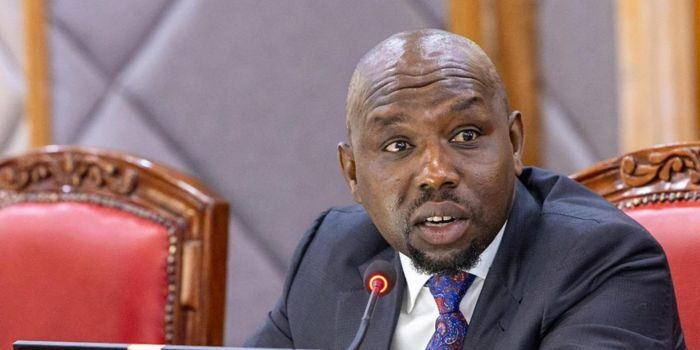Interior and National Administration Cabinet Secretary Kipchumba Murkomen has issued a comprehensive policy directive to guide the National Police Service (NPS) on the use of force and firearms. The directive, dated Friday, July 18, 2025, and addressed to Inspector General of Police Douglas Kanja, seeks to ensure consistency, transparency, and accountability in law enforcement operations.
Citing Article 245(4) and (5) of the Constitution and key sections of the National Police Service Act, Murkomen emphasized that the policy aligns with legal and constitutional standards. It excludes certain contested provisions under Part B, paragraphs 1(c), (d), and (e), to maintain clarity and focus on lawful practices.
The directive outlines that force may only be used when necessary, lawful, and proportionate, and as a last resort. Officers are instructed to explore non-violent means first and to apply force only to the extent required for duty performance. The policy strictly prohibits the use of force as a form of extrajudicial punishment.
Use of firearms is limited to situations where there is a clear threat to life or serious injury, with no viable alternative. All incidents involving firearms must be reported to the Independent Policing Oversight Authority (IPOA) promptly.
The policy also addresses crowd control, stating that force must not be used to disperse unlawful but non-violent assemblies. Police are tasked with protecting peaceful protesters and exercising special care when dealing with vulnerable groups such as children, the elderly, and persons with disabilities.
To enhance operational transparency, the NPS is directed to adopt modern technologies, including body-worn cameras, CCTV systems, and digital evidence tools. Officers are also expected to undergo regular de-escalation training and mental health evaluations.
Murkomen’s directive mandates measurable Key Performance Indicators and a centralized data system to track reportable incidents, complaints, and training compliance. It also ensures officers involved in use-of-force incidents are entitled to legal representation and independent investigations under the IPOA Act.
The Inspector General is required to ensure full compliance and awareness of the new policy across the service, marking a significant step toward reforming police conduct and upholding public trust in law enforcement.

